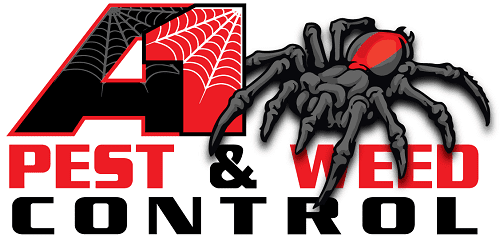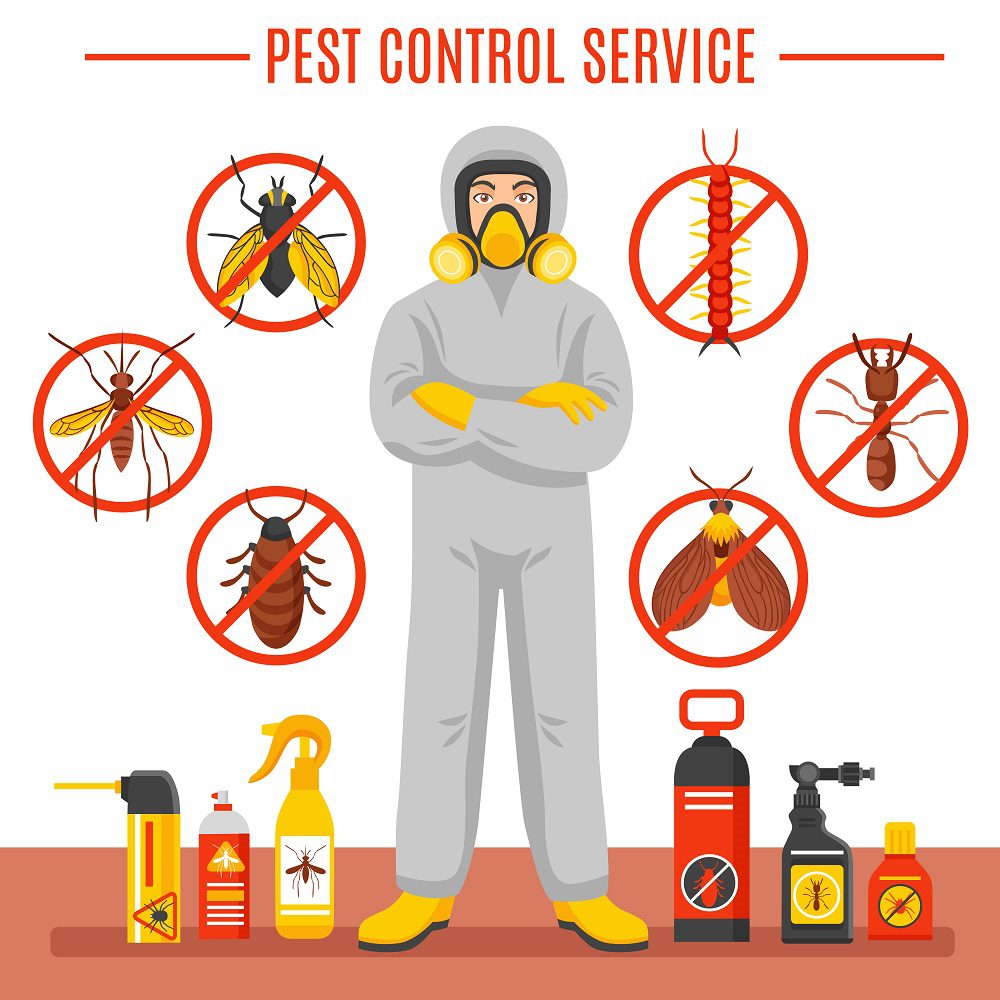Safeguarding Education Spaces: Effective Pest Control for Melbourne Schools, Colleges, & Universities
Educational institutions, such as schools, colleges, and universities in Melbourne, face the persistent challenge of managing pest issues. Pest control plays a vital role in maintaining a healthy learning environment for students and staff.
Understanding effective prevention strategies and implementing appropriate measures is crucial for classrooms, lecture halls, administrative buildings, libraries, study areas, and student housing facilities.
By partnering with A1 Pest & Weed Control, these institutions can rely on a dependable pest management solution to address and mitigate the presence of common pests.
Key Takeaways
Educational institutions, such as schools, colleges, and universities in Melbourne, face an ongoing challenge when it comes to managing pest issues.
Maintaining a healthy learning environment for students and staff is of utmost importance, which is why effective prevention strategies and appropriate measures must be put in place for classrooms, lecture halls, administrative buildings, libraries, study areas, and student housing facilities.
By partnering with A1 Pest & Weed Control, these institutions can rely on a dependable pest management solution to address and mitigate the presence of common pests.
Our experts delve into the specific needs of each educational institution, taking into consideration the unique requirements and layout of the premises.
With our extensive knowledge and experience, we are able to devise tailored pest control plans that are catered to the individual needs of each establishment.
We understand that pest control is not just about eliminating pests but also about ensuring the safety and well-being of everyone on the premises.
That is why our team uses environmentally friendly and safe methods to tackle pest infestations, without compromising the health of students, staff, or the surrounding environment.
At A1 Pest & Weed Control, we pride ourselves on our attention to detail and thoroughness in our work. Our technicians are highly trained and equipped with the latest tools and techniques to effectively address pest issues.
We go above and beyond to ensure that every nook and cranny is inspected and treated, leaving no room for pests to thrive.
In addition to our comprehensive pest control services, we also provide valuable advice and guidance on pest prevention. We believe that education and awareness are key to maintaining a pest-free environment.
Our experts will work closely with your institution to identify potential problem areas and implement proactive measures to prevent future infestations.
When it comes to pest control for educational institutions in Melbourne, A1 Pest & Weed Control is the trusted partner you can rely on. We understand the unique challenges faced by these establishments and are committed to providing effective and sustainable pest management solutions.
Contact us today to learn more about our services and how we can help you create a pest-free learning environment.
Common Pest Issues in Educational Institutions
Pest issues commonly encountered in educational institutions include rodents, cockroaches, ants, termites, and bedbugs. These pests can create significant challenges for schools, colleges, and universities, as they have the potential to cause damage to property, spread diseases, and disrupt the learning environment.
To address these concerns, effective methods for controlling pests, such as preventive measures, monitoring, and implementing pest control solutions, should be implemented. It is crucial for educational institutions to take into consideration pest control factors to ensure a safe and healthy environment for students, staff, and visitors.
The Importance of Pest Control in Schools, Colleges, & Universities
The importance of controlling pests in educational institutions lies in protecting the health and well-being of students, staff, and faculty members. Regular pest inspections offer numerous benefits, as they help identify and address potential infestations before they become significant issues.
Pest infestations can pose serious health risks, such as allergies, asthma, and the spread of diseases. Involving students and staff in pest control efforts not only educates them about the significance of cleanliness and hygiene but also empowers them to contribute to a healthy environment.
Additionally, pests can have a negative impact on the reputation of educational institutions, affecting enrollment and public perception. Proper waste management plays a crucial role in preventing pest infestations by eliminating food and water sources that attract pests.
Understanding Pest Prevention Strategies for Educational Facilities
Implementing effective pest prevention strategies in educational facilities is vital for maintaining a clean and healthy environment.
Educational institutions, such as schools, colleges, and universities, are susceptible to pest infestations due to the significant number of students, staff, and visitors.
Measures to control pests should be implemented in classrooms and lecture halls to hinder the spread of pests and minimize the risk of health hazards.
Commercial methods for pest control can be utilized to efficiently eradicate pests and ensure the safety and well-being of the educational community.
Effective Pest Control Measures for Classrooms and Lecture Halls
Effective pest control measures for classrooms and lecture halls involve implementing proactive strategies to prevent infestations and minimize health risks. To maintain classroom hygiene and create a pest-free environment, educational institutions can employ the following techniques:
- Regular cleaning and sanitation practices to remove food debris and potential pest attractants.
- Sealing cracks and crevices that serve as entry points for pests.
- Installing screens on windows and doors to prevent pest entry.
- Regular inspections and monitoring to detect and address pest infestations promptly.
6 Common Pests Found In Educational Facilities In Melbourne
Cockroaches
Cockroaches can be a major concern in educational institutions due to their potential impact on health and safety. Infestations of these pests can lead to the spread of diseases and trigger allergies among students and staff.
To address this issue, schools and universities should prioritize measures to prevent cockroach infestations. This includes regular cleaning, proper food storage, and sealing of cracks and crevices.
In the event of an infestation, it is important to employ effective methods for controlling and removing cockroaches to ensure a safe and healthy learning environment.
Rodents
Rodents pose a frequent issue in educational institutions in Melbourne, including schools, colleges, and universities. It is of utmost importance to effectively control rodents in order to prevent infestations and maintain a safe and healthy learning environment.
Measures to prevent rodents, such as sealing entry points, ensuring proper food storage, and conducting regular inspections, are crucial. In situations where rodents have already been infested, it is advisable to seek professional extermination services.
Implementing a comprehensive plan to manage rodents is necessary to address and prevent these problems in educational institutions.
Spiders
Arachnids, particularly spiders, are a prevalent concern in academic settings due to their potential to disrupt the learning environment and pose safety risks to students and staff.
Effective methods to control and prevent spider infestations are necessary to ensure a safe and comfortable learning environment. Spider infestations can be addressed through the assistance of professionals who specialize in eliminating spiders.
Additionally, the utilization of spider deterrents can help discourage spiders from entering the premises. Implementing these strategies can minimize the presence of spiders and foster an environment conducive to learning.
| Methods for Controlling Spiders | Description |
|---|---|
| Professional Extermination | Services provided by experts to eradicate spider infestations through targeted treatments. |
| Prevention | Measures are taken to prevent spiders from entering the premises, such as sealing entry points. |
| Deterrents | Products designed to discourage spiders from inhabiting an area, thereby reducing the risk of infestation. |
Ants
These infestations have the potential to disrupt the learning environment and pose safety risks to students and staff.
To effectively address this issue, schools, colleges, and universities should consider the following:
- Ant Control Measures:
Regular inspections conducted by pest control professionals are of utmost importance. Additionally, the implementation of integrated pest management strategies can prove to be beneficial in tackling these infestations. - Ant Prevention:
Regular cleaning and maintenance of facilities are equally important in preventing ant infestations. Sealing potential entry points and eliminating food sources are also necessary steps to take.
Birds
Birds can also raise concerns in educational settings, as their presence can disrupt the learning environment and create safety risks for students and staff. Effective measures for controlling birds are necessary to prevent these issues.
Bird deterrents such as netting, spikes, and visual repellents can be used to discourage birds from roosting or nesting on school premises. Implementing strategies to prevent bird nesting and regularly cleaning up bird droppings can help maintain a clean and safe environment.
Additionally, methods to repel birds such as sound devices or chemical repellents can be employed to discourage their presence.
Wasps
These insects can pose significant risks to human health and safety due to their aggressive behaviour and painful stings.
Effective removal and control methods for these buzzing insects are of utmost importance to ensure the well-being of individuals in different settings. It is vital to promptly identify and exterminate wasp nests to prevent further infestation.
Implementing preventive measures such as regular inspections and sealing potential entry points can help reduce the presence of wasps and minimize the need for extermination.
Types Of Commercial Pest Control Methods Offered In Melbourne
This discussion will explore different approaches to commercial pest control in Melbourne, including the use of chemical sprays for pest eradication.
Additionally, we will examine integrated pest management techniques, which involve a combination of preventive measures and targeted interventions to minimize the reliance on chemical pesticides.
Moreover, we will delve into the concept of biological control, which entails the introduction of natural predators or pathogens to regulate pest populations.
Lastly, we will highlight the significance of pest monitoring and prevention as vital components of effective pest control strategies.
Chemical Sprays for Pests
Chemical sprays are frequently utilized in pest control programs in educational institutions in Melbourne to effectively manage pest infestations. These sprays offer numerous advantages in terms of their effectiveness and efficiency.
Some of the key benefits of using chemical sprays for pest control include:
- Natural alternatives: Chemical sprays provide alternative methods to traditional pest control, offering a more sustainable approach to pest management.
- Non-toxic options: Many chemical sprays are designed to be harmless, ensuring the safety of students, staff, and the environment.
- Eco-friendly sprays: These sprays are formulated to minimize their impact on the environment, reducing the risk of pollution and harm to non-target organisms.
- Organic pest control: Chemical sprays can be derived from organic sources, making them a suitable choice for institutions that prioritize organic pest control methods.
- Safe pest management: Chemical sprays are carefully formulated and applied to ensure safe and effective pest management, minimizing the risk of pest-related health issues and property damage.
Overall, chemical sprays provide educational institutions in Melbourne with a range of options for safe and efficient pest control, offering alternative, harmless, environmentally friendly, and organic choices for effective pest management.
Integrated Pest Management Techniques
Integrated pest management techniques involve a comprehensive approach to controlling pests in educational institutions. These techniques encompass a range of strategies aimed at preventing and managing pest infestations.
They include measures to prevent pests from entering educational institutions, such as sealing cracks and gaps and maintaining cleanliness and hygiene.
Additionally, effective pest control measures are utilized, such as biological control, physical barriers, and targeted treatments, to eliminate pests while minimizing harm to humans and the environment.
Educational institutions can also opt for commercial pest control methods by hiring professional pest control companies. These companies conduct inspections, identify pest issues, and implement appropriate control measures. Furthermore, regular pest monitoring and prevention are essential.
By regularly monitoring and assessing pest activity, infestations can be detected early, and proactive measures can be taken to prevent their recurrence.
Biological Control of Pests
Biological control of pests involves utilizing natural enemies to regulate pest populations and decrease the harm they cause to crops or other organisms. This method utilizes the use of natural predators, such as insects or microorganisms, to manage pest populations. It can also involve introducing plants that are resistant to pests to reduce infestations.
Understanding the life cycles of pests is crucial for implementing effective biological control methods. By employing sustainable pest management practices, biological control provides a more environmentally friendly and long-lasting solution compared to chemical pesticides.
Pest Monitoring and Prevention
Effective pest monitoring and prevention can be achieved through regular surveys and inspections that aim to identify pests and potential entry points or conditions that support their establishment.
By conducting these surveys and inspections, organizations can proactively address pest issues before they become significant concerns.
Implementing proper sanitation practices, sealing entry points, and utilizing commercial methods can effectively deter common pests from infesting educational institutions such as schools, colleges, and universities.
This proactive approach ensures a safe and healthy environment for students and staff.
Pest Control Solutions for Cafeterias and Dining Facilities
We will explore comprehensive strategies for managing pests in cafeterias and dining facilities in schools, colleges, and universities in Melbourne.
To ensure the safety and hygiene of these establishments, it is crucial to conduct regular inspections and monitoring for pests. This helps in identifying infestations early on, which in turn prevents potential health risks and damage to property.
In the light of maintaining a clean and safe environment, it is equally important to implement proper sanitation practices and adhere to food storage protocols. These measures not only ensure food safety but also minimize attractants for pests.
When it comes to pest management solutions for food service areas, Integrated Pest Management (IPM) techniques play a crucial role. Exclusion and non-chemical controls are uniquely effective and environmentally friendly methods that can be employed.
Protecting Sports Facilities and Recreation Areas From Pests
To effectively protect sports facilities and recreation areas from pests, it is crucial to implement proactive strategies for pest management. Outdoor pest control plays a vital role in maintaining sports field maintenance and ensuring the safety of playgrounds.
By creating recreational areas that are free from pests, schools, colleges, and universities can provide a secure and enjoyable environment for their students and athletes.
Effective pest management for sports facilities involves regular inspections to detect pest activity, proper waste management to eliminate sources of food for pests, and targeted treatments to eliminate pests. This ensures that pests do not pose a risk to the health and well-being of individuals using these areas.
| Key Strategies for Managing Pests in Sports Facilities | Benefits for Recreation Areas |
|---|---|
| Regular inspections for detecting pest activity | Reduced risk of injuries and diseases related to pests |
| Proper waste management to eliminate food sources for pests | Enhanced safety of playgrounds |
| Targeted treatments to eliminate pests | Improved aesthetics and cleanliness of sports facilities |
| Collaboration with professional pest control services | Longer lifespan of sports equipment and facilities |
| Implementation of preventive measures to deter pests | Increased satisfaction and enjoyment of recreational activities |
Pest Control Best Practices for Administrative Buildings and Offices
Implementing effective pest management strategies in administrative buildings and offices is crucial for maintaining a clean and hygienic environment that promotes productivity and reduces the risk of pests causing damage or spreading diseases.
To achieve this, it is essential to follow best practices and employ pest prevention strategies. These include regular inspections to uncover potential pest entry points, implementing proper waste management procedures, maintaining cleanliness and hygiene standards, and utilizing environmentally friendly pest control practices.
Maintaining a Healthy Learning Environment: Pest Control for Libraries and Study Areas
Maintaining a wholesome learning environment in libraries and study areas necessitates the implementation of effective pest management practices to prevent pests from causing harm to books, documents, and furniture, as well as to minimize the risk of spreading diseases to library users.
Pest prevention strategies should be integrated into study area maintenance routines, ensuring regular inspection of the premises for signs of infestation.
Proper library hygiene, such as regular cleaning and removal of food debris, is crucial for creating zones free from pests.
Pest Control Considerations for Dormitories and Student Housing
In the light of ensuring the well-being of residents, it is important to establish proactive measures to prevent infestations.
To effectively manage pests in these environments, it is crucial to take the following factors into account:
- Dormitory cleanliness: Regular cleaning and sanitation practices help eliminate potential food sources and breeding grounds for pests. This is not to mention the importance of maintaining a hygienic living space for the residents.
- Pest inspection protocols: Implementing routine inspections allows for early detection of pest issues and prompt action to address them. By the same token, it helps in identifying and resolving any pest-related concerns timely.
- Pest control maintenance: Regular pest control treatments and maintenance are equally important in preventing and controlling infestations. These measures are uniquely designed to keep the living spaces free from pests.
- Implementing educational programs: Educating students on proper pest prevention practices can empower them to take proactive measures. Moreover, it equips them with the knowledge and tools to maintain a pest-free environment.
- Adhering to pest control regulations: Following local, state, and federal regulations ensures compliance and maintains a safe and healthy living environment for students. Similarly, it ensures that pest management practices are in line with the established guidelines and standards.
Partnering With A1 Pest & Weed Control: Your Reliable Pest Management Solution
Partnering with a reputable pest management company can provide dormitories and student housing with a reliable solution for effectively addressing and preventing pest infestations. A1 Pest & Weed Control offers dependable partnerships and effective strategies in pest management.
Their prevention techniques and commercial methods ensure a pest-free environment for schools, colleges, and universities in Melbourne. With their knowledgeable and professional approach, A1 Pest & Weed Control serves the needs of educational institutions, providing a trusted and comprehensive pest management solution.
Frequently Asked Questions
What Are Some Common Pest Issues in Educational Institutions?
Pest issues in educational institutions go beyond what is discussed in this article, and they present a range of diverse challenges. It is vital to adhere to regulations and guidelines to ensure effective pest prevention. It is equally important to implement distinct strategies for classrooms and lecture halls, as well as employ effective techniques for cafeterias and dining facilities.
These considerations are essential for maintaining a pest-free environment in educational institutions.
Are There Any Specific Regulations or Guidelines for Pest Control in Schools, Colleges, and Universities?
Pest management in educational settings poses a range of challenges, leading to the need for regulations and guidelines. These practices take into account the distinctive requirements of schools, colleges, and universities, with a focus on ensuring the safety and well-being of students, faculty, and the environment.
When delving into this subject, it is crucial to consider the specific needs of educational settings. Not only do these places serve as centres of learning, but they also act as environments where students and staff spend a significant amount of time. Therefore, it is of utmost importance to address pest control in light of these factors.
One cannot discuss pest management in schools, colleges, and universities without mentioning the impact it has on the health and safety of individuals.
Equally important is the preservation of the environment, as the use of harmful chemicals can have adverse effects. By the same token, it is essential to develop pest control strategies that are equally effective and environmentally friendly.
Identically, it is vital to recognize the unique challenges that educational institutions face when it comes to pest control. For instance, the presence of food preparation areas and communal spaces can attract pests, requiring specialized approaches to address these issues.
Moreover, the constant influx of students and staff into these facilities makes it necessary to implement preventive measures to mitigate the risk of infestations.
As well as considering the safety and well-being of individuals, pest control in schools, colleges, and universities must also comply with relevant regulations.
Together with state and federal guidelines, educational institutions should adhere to specific protocols to ensure effective pest management. Of course, these regulations are in place to safeguard the health of students, faculty, and staff alike.
Likewise, it is important to compare the pest control practices employed in educational settings with those used in other environments. Comparatively, the challenges faced in schools, colleges, and universities may differ from those encountered in residential or commercial spaces. Correspondingly, the strategies implemented should be tailored to suit the unique circumstances of educational institutions.
Similarly, pest management in educational settings should be approached with a comprehensive mindset. Furthermore, it is crucial to recognize that pest control is not a one-time solution but an ongoing process. Additionally, regular inspections and monitoring are necessary to identify potential issues and address them promptly.
Moreover, implementing integrated pest management (IPM) techniques can be highly beneficial for educational institutions. IPM focuses on a holistic approach that combines preventive measures, monitoring, and the use of environmentally friendly pest control methods. Therefore, it is an effective way to manage pests while minimizing the risks associated with chemical treatments.
Therefore, when it comes to pest control in schools, colleges, and universities, it is essential to consider the unique challenges these settings present. By implementing regulations and guidelines that prioritize the safety of individuals and the environment, educational institutions can ensure a conducive learning environment for students and a healthy workplace for staff.
How Often Should Pest Prevention Strategies Be Implemented in Educational Facilities?
Regular pest inspections are crucial in educational facilities to ensure a learning environment free from pests. Implementing proactive strategies to prevent pests offers numerous advantages while taking into account factors such as facility size and location when scheduling pest control.
Integrated pest management plays a vital role in schools by utilizing a combination of techniques to effectively control pests. Creating a pest-free learning environment requires proper sanitation, maintenance, and education on preventive measures.
Are There Any Unique Pest Control Measures That Should Be Taken in Classrooms and Lecture Halls?
Maintaining cleanliness in classrooms and lecture halls is of utmost importance to ensure an environment conducive to learning. Implementing effective measures to deter pests and prevent infestations is crucial. Following the best practices of pest control in these spaces is essential.
Classroom hygiene plays a significant role in creating a clean and pest-free learning environment. To achieve this, it is necessary to adopt unique pest control measures. These measures are designed to address the specific challenges faced in classrooms and lecture halls.
One such measure is to focus on hygiene practices that discourage pests from entering the space.




